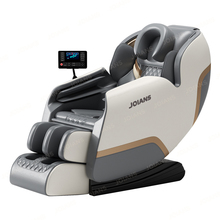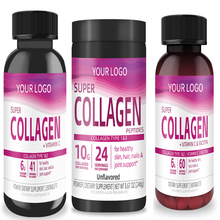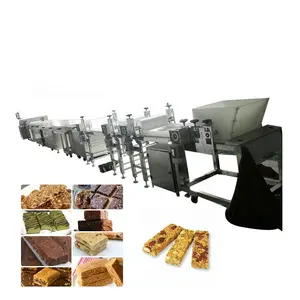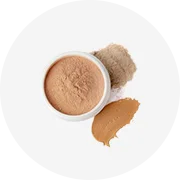What is High-protein Bar
Refined keywords are specialized terms used in the context of online advertising and search engine optimization (SEO) strategies to target a specific audience or market segment. These keywords are carefully selected to appeal to consumers who are looking for a particular product or service, ensuring that businesses can reach their potential customers more effectively. The high-protein bar is a type of refined keyword that caters to a niche audience interested in fitness, bodybuilding, and health foods.
The principle behind refined keywords lies in their specificity and relevance to the target audience. In the world of SEO, keywords are vital for helping search engines like Google, Bing, and Yahoo identify the most pertinent and useful results for a given query. By refining these keywords, businesses can improve their search engine rankings and increase the visibility of their content or products. High-protein bars, for instance, might be refined to include terms such as whey protein bar or low-carb protein bar to attract consumers looking for these specific types of products.
These keywords are not just for businesses selling high-protein bars but also for those in the health and fitness industry looking to optimize their online presence. The use of refined keywords is part of a broader digital marketing strategy that includes creating valuable content, optimizing websites, and using pay-per-click advertising to drive traffic. By understanding the nuances of refined keywords and how they can be strategically implemented, businesses can significantly enhance their online performance.
Types of High-Protein Bars
The market offers a diverse range of high-protein bars tailored to meet different dietary requirements and taste preferences. Here's a closer look at some of the types available:
- Whey Protein Bars: These are popular among athletes and bodybuilders due to their high content of protein, which is derived from milk. They are quickly digested and rich in branched-chain amino acids (BCAAs) that help in muscle recovery and growth.
- Soy Protein Bars: Ideal for vegetarians and vegans, these bars provide a plant-based protein alternative. Soy protein is a complete protein, meaning it contains all nine essential amino acids, and it's known for its beneficial effects on cholesterol levels.
- Casein Protein Bars: This type is less common but can be an excellent choice for those looking for a sustained release of amino acids. It's also derived from milk and has similar benefits as whey protein but is digested more slowly.
- Pea Protein Bars: A hypoallergenic option that's easy on the stomach, pea protein comes from yellow split peas and is rich in BCAAs. It's well-suited for anyone with dairy sensitivities.
- Hemp Protein Bars: Another plant-based option that's gaining popularity. Hemp protein is a complete protein source containing all nine essential amino acids but is not as high in protein content as other types.
How to choose High-protein Bar
Selecting the right high-protein bar for your business involves considering various factors that align with your customers' needs and preferences. As these businesses typically engage in B2B sales, understanding the intended use case—whether it's for direct consumption as health supplements or as ingredients in culinary preparations—is crucial.
Here are some considerations that businesses should keep in mind:
- Protein Content and Composition: The amount of protein in a bar can vary significantly. Some bars may focus solely on offering high-protein content while others include a variety of additional nutrients. It's important to choose based on your target market's preferences.
- Caloric Content: High-protein bars can be high in calories as well. It's essential to consider the overall nutritional profile and whether the caloric content fits your customers' dietary requirements.
- Ingredients: For businesses catering to health-conscious consumers, it’s vital to look for bars with clean ingredient lists—those that are free from artificial additives or have a minimal number of processed components.
- Special Dietary Needs: Offering options that cater to various dietary restrictions such as gluten-free or vegan requirements can help expand your customer base.
- Flavor Profile: While the primary focus is on health benefits, taste is also important. A bar that is palatable can be more appealing and is likely to be consumed more frequently.
- Packaging and Shelf Life: Consider how the product is packaged—whether it's in individual packages or larger cartons—and how it will be displayed or stored. Shelf life is a critical factor influencing procurement decisions.
By weighing these factors carefully, businesses can make informed choices when stocking up on high-protein bars via wholesale channels like Alibaba.com.
About High-protein Bar on Alibaba.com
Alibaba.com stands out as a global marketplace that connects businesses with an extensive range of suppliers offering high-protein bars suited for various market segments. With over two decades of experience facilitating B2B transactions across over 190 countries and areas, Alibaba.com has established itself as an essential platform for businesses looking to source products efficiently and cost-effectively.
Suppliers on Alibaba.com provide detailed product descriptions and certifications where applicable, ensuring that businesses can make informed decisions based on their specific needs. The platform's emphasis on secure transactions through services like Trade Assurance reinforces trust in the purchasing process. Additionally, with features designed to simplify mobile buying and support communication in local languages, Alibaba.com enhances the purchasing experience for businesses worldwide.
Partnering with Alibaba.com means tapping into not just a vast selection but also a network that prioritizes quality and reliability. The ability to cater to customized requirements further positions Alibaba.com as a valuable resource for businesses seeking to offer their customers high-quality protein bars that meet diverse nutritional needs and flavor preferences without compromising on convenience or security in their transactions.
Common FAQs for High-protein Bar
What are the primary ingredients in high-protein bars?
High-protein bars typically contain core components such as protein isolates or concentrates, which can come from sources like whey, soy, or pea. Additional ingredients may include various grains, fibers, vitamins, and minerals to enhance the nutritional profile of the bar.
How can I determine the quality of high-protein bars when purchasing in bulk?
When purchasing in bulk, look for high-protein bars with a robust nutritional profile that aligns with your target market's needs. Quality can be assessed by reviewing supplier information, ingredient lists, and product specifications provided by the manufacturer.
Are there high-protein bars suitable for consumers with dietary restrictions?
Yes, there are high-protein bars made with alternative sweeteners and protein sources to cater to consumers with dietary restrictions such as gluten-free, dairy-free, or vegan diets.
Can high-protein bars be customized based on flavor and packaging?
Many suppliers offer customization options for high-protein bars, including flavor profiles, packaging sizes, and ingredient formulations. Customization can help your product stand out and cater to specific consumer preferences.
What is the difference between whey and plant-based high-protein bars?
Whey high-protein bars are derived from dairy and typically contain all essential amino acids, making them a complete source of protein. Plant-based high-protein bars, on the other hand, are suitable for vegetarian and vegan diets as they use alternative protein sources like peas, brown rice, or hemp.
How do I choose the right packaging for high-protein bars?
Selecting the right packaging depends on your distribution needs and consumer convenience. Options range from individual wrappers that are ideal for on-the-go consumption to larger bulk packaging for those selling to retail or other businesses.
What should I consider when selecting the texture of a high-protein bar?
Consider your target market's preferences; some may prefer a crispy texture while others may look for a softer bite. Additionally, the texture can affect the taste experience. For instance, some consumers might prefer a chewy bar over a crunchy one.
Are there any age-specific considerations when choosing high-protein bars?
Yes, age-specific considerations are important. Bars designed for children are often lower in calories and easier to chew, while those for adults may focus on higher protein content or additional nutrients like iron or calcium.
How does the flavor variety impact the selection of high-protein bars?
Offering a wide range of flavors can attract a broader customer base. Ensure that there is a balance between familiar and new flavors that appeal to different tastes without overwhelming the product line.
Is it possible to find allergen-friendly high-protein bars?
High-protein bars made with alternative sweeteners and gluten-free or dairy-free ingredients are available. Look for keywords like allergen-friendly or gluten-free in product descriptions to meet these consumer needs.
How do nutritional additives in high-protein bars affect their appeal?
Nutritional additives can enhance the appeal by providing additional health benefits such as increased protein content, fiber, vitamins, or minerals. However, it's important not to overshadow the taste or quality of the bars.
What types of high-protein bars are best suited for sports nutrition products?
High-protein bars fortified with essential amino acids and high-quality protein sources are best suited for sports nutrition as they help in muscle recovery and development. They should also be easily digestible to provide quick energy during or after workouts.
Can high-protein bars be marketed as meal replacements?
Some high-protein bars can serve as meal replacements due to their balanced nutrient profiles. However, it's important to consider the overall caloric content and nutritional composition to ensure they meet the requirements for a meal replacement.
How can businesses ensure they are sourcing high-protein bars with good ingredient quality?
Businesses should look for suppliers with transparent ingredient lists, good manufacturing practices, and those that provide machinery test reports or other quality certifications. Reading reviews and ratings on Alibaba.com can also give insights into product quality.

































 浙公网安备 33010002000092号
浙公网安备 33010002000092号 浙B2-20120091-4
浙B2-20120091-4